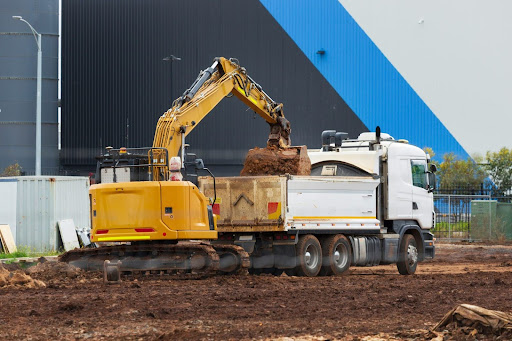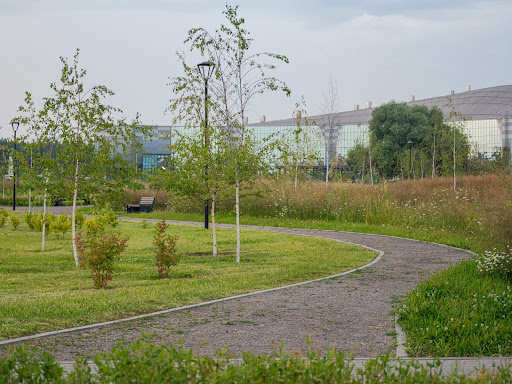Melbourne’s property development landscape has undergone a significant transformation in recent years, with new council regulations and development standards creating both opportunities and challenges for homeowners and contractors alike.
As the city continues its rapid expansion across the metropolitan area, from the established suburbs of the inner east to the growing communities in Melbourne’s outer west, understanding these evolving requirements has become crucial for anyone undertaking landscaping projects of any scale.
The complexity of modern development standards reflects Melbourne’s commitment to sustainable growth, infrastructure protection, and community safety. However, for property owners planning landscaping improvements, these regulations can seem overwhelming without proper guidance.
The interconnected nature of licensing requirements, access road standards, and landscaping regulations means that what might appear to be a straightforward garden renovation can quickly become a complex project requiring professional expertise and careful planning.
Understanding Melbourne’s Evolving Development Framework
Melbourne’s development standards have evolved dramatically over the past decade, driven by the city’s rapid population growth and the increasing complexity of modern construction and landscaping projects.
The Victorian Building Authority, local councils, and state planning departments have implemented comprehensive frameworks designed to ensure that all development activities meet contemporary safety, environmental, and infrastructure standards.
These changes reflect lessons learned from decades of urban development, including the recognition that inadequate infrastructure planning can create long-term problems for communities.
Modern standards emphasize the importance of proper vehicle access, environmental protection, and professional accountability, all factors that directly impact landscaping projects throughout Melbourne’s diverse suburbs.
The regulatory framework now recognizes that landscaping projects often involve heavy machinery, significant material deliveries, and complex logistical requirements that can impact local infrastructure if not properly managed.
This recognition has led to more stringent requirements for access roads, operator licensing, and project planning that affect everything from small residential gardens to large commercial landscaping installations.
Understanding these requirements before commencing any landscaping project can save property owners significant time, money, and frustration while ensuring compliance with all relevant regulations and standards.
The Critical Role of Proper Vehicle Access
One of the most significant changes in Melbourne’s development standards relates to vehicle access requirements for construction and landscaping projects. Modern regulations recognize that inadequate access can damage local infrastructure, create safety hazards, and compromise project outcomes.
This has led to specific requirements for access road construction and maintenance that directly impact landscaping projects.
Professional spray seal asphalt applications have become increasingly important in meeting these access requirements. Spray seal provides a cost-effective solution that offers the durability needed for heavy equipment while being suitable for both temporary construction access and permanent driveway applications.
This technology is particularly valuable in Melbourne’s variable climate, where traditional unsealed surfaces can become impassable during wet weather periods.
Heavy landscaping equipment, including excavators, bobcats, and material delivery trucks, can cause significant damage to standard residential driveways and local roads not designed to handle such loads.
Melbourne councils now require proper access planning for projects involving heavy machinery, with specific standards for temporary and permanent access roads that can safely accommodate construction traffic.
The engineering requirements for proper access roads depend on various factors, including soil conditions, expected traffic loads, and environmental considerations.
Melbourne’s diverse geology, from the clay soils of the western suburbs to the sandstone formations in the east, requires different approaches to access road construction and maintenance.
Licensing Requirements and Professional Accountability
Melbourne’s development standards now place greater emphasis on professional qualifications and licensing requirements for contractors involved in landscaping and construction projects. This shift reflects recognition that complex projects require specific skills and knowledge to ensure safety, compliance, and quality outcomes.
The licensing framework covers various aspects of landscaping and construction work, from basic trade qualifications to specialized endorsements for heavy machinery operation. For larger projects involving earthmoving, access road construction, or significant infrastructure work, contractors must demonstrate appropriate qualifications and insurance coverage.
An unrestricted license becomes particularly important for projects requiring the operation of heavy vehicles and machinery. These licenses demonstrate that operators have received comprehensive training in safety procedures, equipment operation, and regulatory compliance factors that are crucial for successful project completion and risk management.
The licensing requirements also extend to specialized areas such as excavation work, drainage installation, and environmental protection measures.
Melbourne’s councils now regularly verify contractor qualifications as part of the permit approval process, making proper licensing essential for project approval and completion.
Environmental Considerations and Sustainability
Melbourne’s development standards increasingly emphasize environmental protection and sustainability considerations that directly impact landscaping projects.
These requirements reflect growing awareness of the environmental impacts of construction activities and the importance of protecting Melbourne’s urban forest and waterway systems.
Stormwater management has become a critical consideration for landscaping projects, with specific requirements for drainage design, permeable surfaces, and water quality protection. Access road construction must now consider runoff management and environmental impact minimization as core design criteria.
Tree protection regulations have also become more stringent, with specific requirements for protecting significant trees during construction activities.
This includes restrictions on access routes, equipment operation zones, and soil compaction limits that can significantly impact project planning and execution.
Native vegetation protection is another key consideration, with specific requirements for assessment and protection of indigenous plant communities.
These requirements can affect both access planning and landscaping design, particularly for projects in Melbourne’s outer suburbs where native vegetation is more prevalent.
Council Variations Across Melbourne
Different Melbourne councils have implemented varying interpretations of state-level requirements, creating a complex regulatory landscape that requires local expertise to navigate effectively.
From the City of Melbourne’s urban density challenges to the Shire of Yarra Ranges’ environmental protection focus, each council area presents unique considerations for landscaping projects.
Inner Melbourne councils often emphasize heritage protection and urban design considerations, while outer suburban councils may focus more heavily on environmental protection and infrastructure impact management. Understanding these local variations is crucial for project planning and regulatory compliance.
The permit application processes also vary significantly between councils, with different documentation requirements, assessment timeframes, and approval criteria. Professional contractors familiar with local council requirements can streamline this process and avoid common pitfalls that might delay project commencement.
Some councils have developed specific guidelines for landscaping and construction access that go beyond state-level requirements. These local standards reflect specific community concerns and infrastructure limitations that must be addressed in project planning.
Melbourne Landscaping: Navigating Complex Regulations
Professional Melbourne landscaping contractors have adapted to these evolving standards by developing comprehensive approaches that address all regulatory requirements from project inception through completion. This includes detailed planning for access requirements, proper licensing verification, and compliance with environmental protection measures.
The complexity of modern landscaping projects in Melbourne often requires coordination between multiple specialists, including landscape designers, civil engineers, arborists, and infrastructure specialists.
Professional contractors understand how these different elements interconnect and can navigate the regulatory framework efficiently.
Experienced landscaping professionals also understand the importance of early consultation with local councils to ensure that project plans meet all relevant standards.
This proactive approach can prevent costly delays and modifications that might otherwise arise during the project execution phase.
The investment in professional landscaping services often proves cost-effective when considering the potential consequences of non-compliance, including project delays, additional costs, and possible legal issues.
Professional contractors also bring valuable expertise in selecting appropriate materials and techniques that meet regulatory standards while delivering desired aesthetic outcomes.
Economic Implications and Cost Management
The evolving development standards have significant economic implications for landscaping projects, with compliance costs that must be factored into project budgets from the planning stage. However, these costs are often offset by improved project outcomes and reduced risk exposure.
Proper access road construction, while representing a significant upfront investment, often proves cost-effective by preventing damage to existing infrastructure and avoiding potential liability issues. The durability and functionality of professional access roads also provide long-term value that extends beyond the immediate project requirements.
Professional licensing and qualified contractors, while commanding premium pricing, typically deliver better project outcomes with reduced risk of delays, compliance issues, or quality problems.
The insurance and warranty coverage provided by licensed contractors also offers valuable protection for property owners.
Early consultation with professionals can identify potential compliance issues before they become costly problems, allowing for proactive planning that minimizes overall project costs while ensuring regulatory compliance.
Technology and Innovation in Compliance
Modern technology has created new opportunities for efficient compliance with Melbourne’s development standards. Digital planning tools, GPS mapping, and advanced materials have improved the accuracy and efficiency of project planning while reducing environmental impacts.
Advanced materials technology, including modern spray seal formulations, provides better performance and durability while meeting environmental standards. These innovations allow for access solutions that were not previously available, expanding the possibilities for challenging project sites.
Digital documentation and monitoring systems also help ensure ongoing compliance throughout project execution, providing clear records of regulatory adherence that protect both contractors and property owners.
Planning Your Melbourne Landscaping Project
Successful navigation of Melbourne’s development standards begins with comprehensive planning that addresses all regulatory requirements from the outset. This includes early consultation with qualified professionals who understand both the technical requirements and the local regulatory landscape.
Site assessment should consider access requirements, environmental constraints, and regulatory obligations as primary factors in design development.
This approach ensures that aesthetic goals can be achieved within the regulatory framework rather than creating conflicts that require costly resolution.
Timeline planning must account for permit approval processes, access road construction, and potential seasonal constraints that might affect project execution. Professional project management becomes increasingly valuable as project complexity increases.
Conclusion: Embracing Professional Standards
Melbourne’s evolving development standards represent a maturation of the city’s approach to sustainable growth and infrastructure protection.
While these requirements create additional complexity for landscaping projects, they also provide frameworks for achieving better outcomes that serve both individual property owners and the broader community.
The key to successful project completion lies in understanding and embracing these professional standards rather than viewing them as obstacles.
By working with qualified professionals, investing in proper access infrastructure, and planning comprehensively from the outset, property owners can achieve exceptional landscaping outcomes while contributing to Melbourne’s continued development as one of the world’s most liveable cities.
As Melbourne continues to grow and evolve, these standards will undoubtedly continue to develop. Property owners and contractors who stay ahead of these changes and invest in professional approaches will be best positioned to achieve successful outcomes while supporting the city’s long-term sustainability goals.




